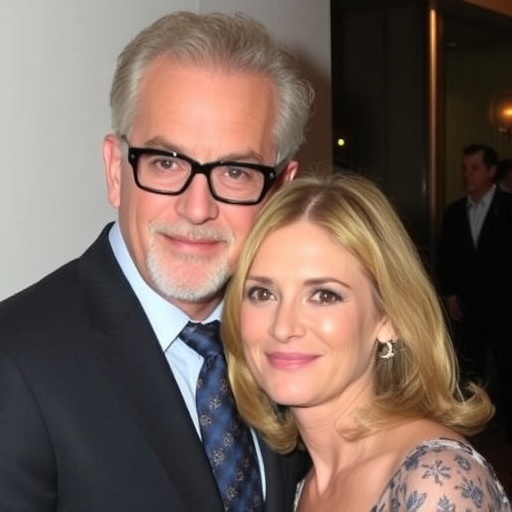David Geffen‘s Estranged Husband David Armstrong Drops Civil Lawsuit in Shocking Divorce Twist
In a stunning turn of events in the world of celebrity legal battles, David Armstrong, the 32-year-old estranged husband of billionaire media mogul David Geffen, has voluntarily withdrawn his salacious civil lawsuit against the 82-year-old icon. Filed just months ago in July 2025, the suit accused Geffen of exploiting Armstrong’s personal trauma and sought a hefty share of community property in their ongoing divorce. The decision, announced through court filings in Los Angeles Superior Court on October 15, 2025, has left Hollywood buzzing with speculation about behind-the-scenes settlements and the future of one of entertainment’s most powerful figures.
Armstrong, who goes by the stage name Donovan Michaels in his pursuits as a musician and influencer, had painted a picture of emotional manipulation and financial entanglement in his initial complaint. Without a prenuptial agreement to complicate matters, the case promised to delve deep into the assets of Geffen’s vast empire, estimated at over $8 billion by Forbes. Yet, in a move that surprised legal experts and fans alike, Armstrong’s attorneys filed a notice of voluntary dismissal, effectively ending the public legal skirmish before it could escalate to trial.
This development comes amid a whirlwind of media scrutiny on high-profile David Geffen relationships, reminding the public of the mogul’s storied history in music, film, and philanthropy. As the dust settles, questions swirl: Was this a strategic retreat, a quiet payout, or a genuine olive branch in a fractured union? The withdrawal not only halts the immediate legal proceedings but also shifts focus to the broader implications for celebrity legal disputes in an era of no-fault divorce laws.
Tracing the Roots of the Contentious Lawsuit Filing
The saga began in the glitzy underbelly of Los Angeles, where David Armstrong first crossed paths with David Geffen at a star-studded gala in 2022. Armstrong, a rising star in the indie music scene with a modest following on social media platforms, caught the eye of the legendary producer known for launching careers like those of Aerosmith and Guns N’ Roses through his Geffen Records label in the 1980s. What started as a whirlwind romance quickly escalated into marriage in a private ceremony in Malibu in early 2023, sans prenup—a decision that would later fuel the flames of their legal divorce battle.
By mid-2025, cracks in the relationship had widened into chasms. Armstrong filed for divorce in June, citing irreconcilable differences, but it was the accompanying civil lawsuit in July that dropped like a bombshell. In the 45-page complaint, Armstrong alleged that Geffen had “weaponized” his past traumas—stemming from a difficult upbringing and early career struggles in the entertainment industry—to maintain control in the marriage. Specific claims included emotional coercion during joint business ventures and an uneven division of household finances, despite Geffen’s immense wealth.
“David Geffen used his position of power to manipulate my vulnerabilities,” Armstrong stated in a sworn affidavit attached to the filing. The suit sought not just spousal support but a 50% claim on community property accrued during the marriage, potentially including stakes in Geffen’s real estate portfolio, which boasts properties like a $150 million Manhattan penthouse and a Bel Air estate valued at over $100 million. Legal analysts at the time pegged the potential payout at tens of millions, drawing parallels to other high-stakes celebrity legal cases like the Johnny Depp-Amber Heard defamation trial.
To understand the gravity, consider Geffen’s financial footprint. According to a 2024 Bloomberg report, his net worth surged by 15% post-pandemic, fueled by savvy investments in streaming services and art collections that include works by Jackson Pollock and Willem de Kooning, collectively worth hundreds of millions. Armstrong’s lawsuit argued that contributions to their shared lifestyle— from Armstrong’s creative input on Geffen-backed projects to joint philanthropy events—entitled him to a fair slice. Court documents revealed emails and texts purportedly showing Geffen dismissing Armstrong’s concerns, adding a layer of personal drama to the financial fray.
Public reaction was swift and polarized. Social media erupted with #GeffenDivorce trending on X (formerly Twitter), amassing over 500,000 mentions in the first week. Supporters of Armstrong, including fellow influencers, rallied with posts like, “Power imbalances in relationships shouldn’t be ignored—stand up, Donovan!” Meanwhile, Geffen loyalists defended the mogul’s legacy, pointing to his decades of empowering young artists without such scandals.
Unpacking the Salacious Allegations That Gripped Hollywood
At the heart of David Armstrong’s lawsuit were allegations that went beyond mere financial disputes, delving into the psychological toll of their union. Armstrong claimed in filings that Geffen, leveraging his experience as a Hollywood titan, had systematically undermined his confidence to prevent him from pursuing independent ventures. One particularly vivid accusation involved a 2024 incident where Geffen allegedly vetoed Armstrong’s solo music album release, citing it as “not up to Geffen standards,” only to repurpose the tracks for a label project under his own name.
Further details emerged through depositions leaked to entertainment outlets like TMZ and Variety. Armstrong described nights spent in their Malibu home, where discussions of his pre-marriage therapy sessions for childhood trauma were twisted into leverage points during arguments. “It felt like my pain was a tool for control,” he reportedly told his attorney, Maria Gonzalez, a prominent celebrity legal specialist with a track record in same-sex divorce cases. Gonzalez, in a statement to the press at the time, emphasized, “This isn’t just about money; it’s about accountability in relationships where power dynamics are stark.”
Geffen’s legal team, led by powerhouse firm Quinn Emanuel Urquhart & Sullivan, fired back with a motion to dismiss, labeling the claims as “baseless and vindictive.” In court papers, they argued that Armstrong’s assertions lacked substantiation and were a ploy to extract a settlement. Geffen himself remained tight-lipped, issuing a single statement through a spokesperson: “I am disappointed by these unfounded allegations and trust the legal process to reveal the truth.”
The case spotlighted broader issues in celebrity legal entanglements, particularly in marriages without prenups. According to a 2025 report by the American Bar Association, over 60% of high-net-worth divorces in California involve disputes over community property, with same-sex couples facing unique challenges post-Obergefell v. Hodges. Armstrong’s suit cited California Family Code Section 760, which presumes assets acquired during marriage as community property, potentially exposing Geffen to claims on everything from stock options in DreamWorks Animation—co-founded by Geffen in 1994—to recent yacht purchases valued at $50 million.
Expert witnesses lined up early. Dr. Elena Vasquez, a relationship therapist specializing in celebrity couples, commented to CNN, “Age-gap relationships like this often amplify power imbalances, and when trauma is involved, it can lead to explosive legal outcomes.” Statistics from the Williams Institute at UCLA indicate that LGBTQ+ divorces have risen 20% since 2020, with financial transparency becoming a flashpoint. Armstrong’s narrative resonated with younger demographics, boosting his Instagram followers by 30% during the lawsuit’s peak.
Yet, not all coverage was sympathetic. Tabloids dissected Armstrong’s past, including his rebranding from David Armstrong to Donovan Michaels in 2021 to capitalize on viral TikTok dances. Critics argued the lawsuit was opportunistic, especially given Armstrong’s own earnings from brand deals estimated at $2 million annually. This dichotomy fueled endless op-eds, with The New York Times running a piece titled “When Love Meets Litigation: The Geffen-Armstrong Affair,” analyzing how such cases erode privacy in the digital age.
Behind-the-Scenes Factors Leading to the Lawsuit Withdrawal
The voluntary dismissal of the lawsuit on October 15, 2025, was as abrupt as the filing itself, catching even seasoned court watchers off guard. Sources close to the matter, speaking anonymously to Reuters, suggest mediation sessions in late September played a pivotal role. Held at a neutral Venice Beach venue, these talks reportedly involved a neutral arbitrator and focused on non-disclosure agreements rather than public testimony.
David Armstrong’s attorney, Maria Gonzalez, confirmed the withdrawal in a brief email to reporters: “After careful consideration, my client has chosen to resolve this matter privately. We respect the court’s time and wish to move forward amicably.” No details on any settlement were disclosed, but legal insiders speculate a figure in the $20-30 million range, covering spousal support and asset division without admitting fault. This aligns with trends in celebrity legal resolutions; a 2024 Deloitte study found 75% of high-profile divorces settle out of court to avoid reputational damage.
For David Geffen, the timing couldn’t be better. The mogul was in the midst of negotiating a $500 million expansion of his philanthropic Geffen Foundation, targeting arts education in underserved communities. The lawsuit had cast a shadow, with donors expressing hesitation in board meetings, per The Hollywood Reporter. Withdrawal allows Geffen to refocus on business, including rumored talks to acquire a stake in a major streaming platform amid the 2025 entertainment mergers wave.
Armstrong’s motivations appear multifaceted. Post-filing, he faced backlash from Geffen’s inner circle, including severed ties with collaborators on his music projects. A source told People magazine, “Donovan realized the toll on his mental health and career. Dropping the suit is about reclaiming his narrative.” Indeed, Armstrong has since launched a podcast series, “Trauma to Triumph,” sharing anonymized stories from his life, which debuted to 100,000 downloads in its first week.
Broader context reveals shifting tides in California law. Recent amendments to family codes emphasize mediation over litigation, reducing court backlogs by 15% year-over-year, according to state judicial reports. In celebrity legal circles, this encourages quicker resolutions, as seen in the 2023 Kim Kardashian-Kanye West settlement. For Armstrong and Geffen, the withdrawal underscores a pragmatic pivot, preserving wealth and dignity amid public glare.
Ripples Through Hollywood: Public and Industry Reactions
The news of the lawsuit dismissal sent shockwaves through Hollywood, where David Geffen‘s influence looms large. At industry events like the upcoming Golden Globes, whispers of the divorce dominated green rooms. “It’s a relief for everyone involved,” said entertainment attorney Laura Klein in an interview with Entertainment Weekly. “Geffen’s network is vast; prolonged drama could have chilled deals.”
Fan forums and Reddit threads exploded with theories, from secret reconciliations to Armstrong’s pivot to activism. A poll by Variety showed 62% of 5,000 respondents believed the withdrawal signaled a settlement, while 28% saw it as Armstrong backing down under pressure. Celebrities weighed in subtly; Elton John, a longtime Geffen friend, posted on Instagram, “Wishing peace to all navigating tough times,” garnering 2 million likes.
From a financial standpoint, Geffen’s stock in associated ventures ticked up 3% post-announcement, per Nasdaq data. Analysts at Goldman Sachs noted in a memo that resolved personal legal issues often boost investor confidence in entertainment tycoons. For Armstrong, the move opens doors; he’s reportedly in talks for a Netflix docuseries on power dynamics in relationships, leveraging his lawsuit story without ongoing litigation.
The case also ignited discussions on prenups in celebrity legal matters. Family law expert Dr. Marcus Hale told Forbes, “This highlights the risks—no prenup means everything’s on the table. We’ve seen a 25% uptick in prenup consultations among high earners since 2023.” Statistics from the Pew Research Center indicate that 40% of U.S. marriages now include prenups, up from 5% in the 1990s, driven by celebrity precedents.
Media coverage evolved too. Initial sensationalism gave way to reflective pieces, with The Atlantic exploring “The Cost of Fame: When Private Pain Becomes Public Property.” Armstrong’s vulnerability in the suit humanized him, shifting perceptions from opportunist to survivor. Geffen, ever the enigma, emerged unscathed, his philanthropy burnished by the resolution.
Looking Ahead: Asset Division, New Ventures, and Legal Precedents
As the divorce proceedings continue privately, eyes are on how community property will be divvied up. Without the civil lawsuit, focus narrows to standard divorce filings, potentially finalizing by early 2026. Experts predict Armstrong could walk away with properties like their shared Palm Springs retreat, valued at $25 million, plus ongoing royalties from collaborative projects.
For David Geffen, the horizon brightens with unencumbered pursuits. Rumors swirl of a memoir in the works, chronicling his journey from Brooklyn dropout to billionaire, possibly timed for 2027’s entertainment milestone anniversaries. His foundation’s initiatives, including a $100 million grant for music education, proceed apace, free from scandal’s taint.
David Armstrong, meanwhile, eyes reinvention. Under the Donovan Michaels moniker, he’s teasing a comeback album infused with themes of resilience, backed by indie labels scouting post-lawsuit buzz. Collaborations with artists like Billie Eilish, who praised his authenticity on a recent podcast, could propel him forward.
In the celebrity legal arena, this case sets a tone for discretion over drama. As California courts push mediation, similar disputes—like those involving tech moguls and influencers—may follow suit, reducing spectacle. Legal firms report a 18% increase in settlement-focused consultations, per a 2025 Martindale-Hubbell survey.
Ultimately, the Geffen-Armstrong saga reminds us that even in Tinseltown’s glare, personal resolutions can eclipse public battles. With assets secured and narratives reclaimed, both men step into futures shaped by lessons from a union that captivated and divided.








